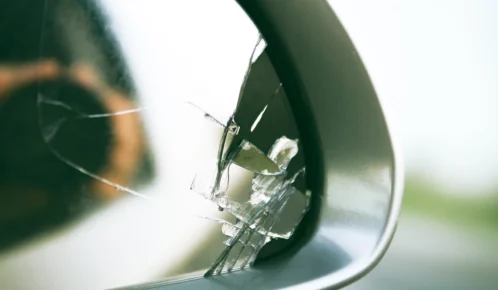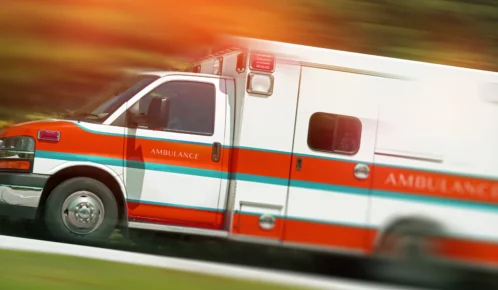You’ve suffered significant harm due to a medical professional’s negligence, and now you’re considering legal action. One critical decision you’ll face is whether to enlist the help of a medical malpractice expert witness.
Table of Contents

Medical malpractice cases require solid proof that medical negligence is responsible for a patient’s injuries. To establish the standard of care expected by the defendant, and often to support the plaintiff’s claim of how the duty to uphold it was breached, almost all medical malpractice lawsuits in Illinois require testimony by a medical malpractice expert witness.
Why Are Medical Malpractice Expert Witnesses Necessary?
In a medical malpractice lawsuit, the burden of proof lies with you, the plaintiff, to demonstrate that a medical professional breached the duty of care and caused you harm. This can be a complicated task, as medical issues often involve intricate details and specialized knowledge beyond the grasp of a jury or judge. Medical experts bridge this gap by providing crucial insights and establishing the standard of care that should have been followed.
The Role of an Expert Witness in Proving Medical Malpractice
Without a medical malpractice expert, proving your case and securing fair compensation can be significantly more challenging. By providing vital insights and bolstering your arguments, these specialists play a critical role in achieving a successful outcome. Here’s how:
- Establishing the Standard of Care: Experts can explain the appropriate medical practices and procedures in similar situations. They can testify whether the healthcare provider deviated from this established standard, ultimately leading to your injury.
- Translating Medical Jargon: Expert witnesses can decipher complex medical terminology and diagnoses, making the case more understandable for the jury.
- Supporting Causation: Experts can link the medical professional’s negligence to your specific injury, strengthening the cause-and-effect argument within your lawsuit.
- Credibility and Impartiality: Qualified medical experts hold significant weight in court due to their experience and specialized knowledge. Their objective assessment of the situation adds credibility to your case.
In Illinois, the Code of Civil Procedure requires that the plaintiff in a medical malpractice case file an affidavit of merit stating that he or she has consulted with a qualifying medical expert. The affidavit must include a written report by the medical expert detailing the expert’s opinion that there is reasonable cause to file the action. A separate report must be included for each defendant in the case. The report doesn’t need to identify the expert or include his or her signature. However, your medical malpractice lawyer will likely call upon the same expert to testify in court if your case goes to trial.
Although it is difficult to say for sure what percentage of medical malpractice cases go to trial, the estimate is about 50%, and less than 5% of these end with a court verdict. The majority of medical malpractice claims get resolved in settlement agreements that are handled out of court.
If testifying in court, the expert witness will testify as to what a competent doctor with the same training and skill would have done under similar circumstances. The expert witness will also give an opinion on whether he/she believes that the doctor who is getting sued lived up to that standard of care.
Types of Expert Witnesses in Medical Malpractice Cases
Medical experts aren’t the only specialists that assist plaintiffs in malpractice cases. The specific type of medical malpractice expert needed in your case will depend on the type of medical provider that the defendant is, and the nature of the alleged negligence. Here’s a breakdown of some common expert witnesses you might encounter.
Physicians
The most common type of expert witness in medical malpractice cases. A physician specializing in the same field as the defendant (e.g., a cardiologist for a cardiology malpractice case) can testify to the standard of care in that particular area of medicine. They can assess whether the defendant’s actions met this standard and if their deviation caused your harm.
Sub-Specialty Physicians
In complex cases involving specific medical procedures or rare conditions, a sub-specialty physician with even more focused expertise might be necessary. For example, a neurosurgical malpractice case might require a neurology sub-specialty expert.
Nurses
Registered nurses with substantial experience in relevant areas can provide expert testimony on nursing standards and procedures. They can address issues like medication administration, patient monitoring, and adherence to established protocols.
Life Care Planners
These specialists can project your future need for getting medical treatment after the medical malpractice, whether the need for in-home nursing care is likely, and the chances of you needing special medical equipment in your home or vehicle. This information is crucial for determining the fair amount of compensation you should receive.
Pharmacists
Pharmacists with expertise in medication interactions and dosages can be valuable witnesses in cases involving medication errors. They can explain side effects and whether the prescribed medication was appropriate for your condition.
Medical Record Reviewers
These experts can analyze medical records to identify inconsistencies, omissions, or charting errors that might support your malpractice claim.
Biomedical Engineers
In cases involving medical devices or product malfunctions, a biomedical engineer can assess the device’s safety and functionality. They can determine if the device malfunctioned or if it was used improperly, contributing to your injuries.
Economists
Economists can estimate the lost wages and future earning potential due to the malpractice-related injuries. This information is factored into the overall value of your case.
This list is not exhaustive. Depending on the specifics of your case, other specialized experts might be necessary to strengthen your claim and ensure a successful outcome.
What Elements Are Needed to Prove a Medical Malpractice Case in Illinois?
Medical malpractice lawsuits require proof that must stand up in a civil court trial. To validate proof and win a medical malpractice lawsuit, four important factors must be established:
- Failure to Provide the Expected Standard of Care – The law requires that healthcare professionals adhere to medical standards. If care falls below these standards due to negligent or improper actions, it may be considered medical malpractice.
- Breach of Duty Occurred – Breach of duty occurs when a doctor/patient relationship exists and the doctor does not follow his or her duty of care. This typically occurs when a doctor fails to provide care to the level that an equally trained professional would provide.
- Causation – There must be proof that the breach caused the patient’s harm such as illness or worsening condition, physical injury, temporary or permanent disability, or death.
- Patient Harm – A mistake made during a medical procedure is not enough to warrant a lawsuit. Patient harm must have been caused by substandard care or negligent actions.
How an Attorney Can Help You Find and Hire a Medical Malpractice Expert Witness in Illinois
An Illinois medical malpractice attorney has access to invaluable resources when it comes to finding a qualified expert witness. Your lawyer will understand the specific needs of your case and can identify experts who specialize in the relevant field.
Here’s how your attorney can assist you in finding and hiring the right medical malpractice expert witness in Illinois:
- Network of Experts: Attorneys often have established relationships with a network of qualified medical professionals across various specialties. They can leverage these connections to find a reputable expert with experience testifying in Illinois courts.
- Understanding Case Requirements: Your attorney will assess your case and pinpoint the type of medical expertise needed. For instance, an orthopedic surgeon might be necessary for a case involving a surgical error, while a psychiatrist could be crucial if your malpractice claim involves mental health consequences.
- Expert Evaluation: Attorneys can interview and evaluate expert witnesses to assess their qualifications, experience with testifying in court, and communication skills. Your lawyer will ensure the chosen expert can effectively explain complex medical concepts to a jury in a clear and compelling manner.
- Negotiating Fees: Finding a qualified expert often involves fee negotiations. Your attorney’s experience in handling medical malpractice cases empowers them to negotiate reasonable rates on your behalf.
Beyond identifying and vetting experts, your attorney will handle the logistics of scheduling expert witness depositions, coordinating with the expert regarding case details, and preparing them for their courtroom testimony.
Many Illinois medical malpractice lawyers offer a free case review to evaluate your claim. Working with the right lawyer can mean the difference between a loss and a win that may have a big impact on your future. Contact the skilled attorneys at Ankin Law to ensure your rights are protected.



